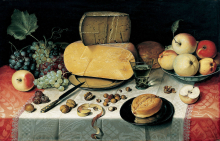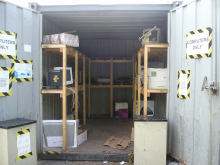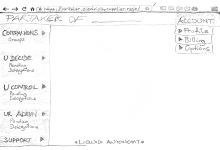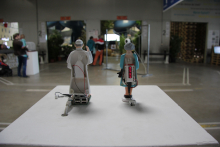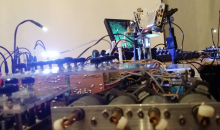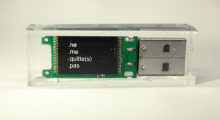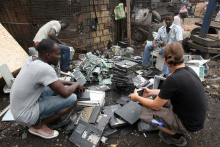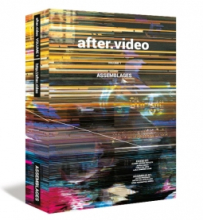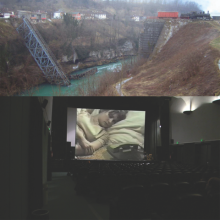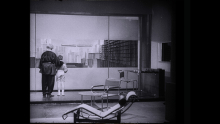Check in. Getting Infos, etc
Program 2016
Thursday 26.05.
09:00 – 19:00
09:30 – 10:45
11:00 – 11:40
This presentation will compare two contemporary means to manage digital detritus – the deletion of unwanted data and the disposal of electronic waste. Algorithms for selecting and automatically deleting irrelevant data will be compared with market based interventions for disposing of former electronic goods. In both cases demarcating wanted from unwanted, valued from unvalued and relevant from irrelevant stuff will sit centre stage.
14:00 – 17:00
A concept for self-government of public goods and public infrastructure
This is a workshop to review the concept of 'liquid autonomy', question the idea and it’s premisses, discuss promising areas of application. The overall goal is to see if the idea of 'liquid autonomy' is conclusive enough to be a popular political demand that can challenge established power structures and ways of thinking.
Death of Things (DoT) is a series of moving figures representing public personas whose operation depends if these people are still alive. When the system detects that the character has died, the figure will stop moving permanently. A connection between the 'life' of the object and the person's life represented is established.
14:00 – 17:30
A 2 days workshop by Wolfgang Spahn
Can you imagine to create a sound composition out of electro-magnetic pollution?
Every motor, solenoid and coil produces an electro-magnetic field. These fields exist inside as well as outside of these devices, although the latter would not be necessary to ensure their function. Yet, we can detect them there. Sometimes we even experience this electro-magnetic pollution because it is disturbing our telephones, stereos or radios.
14:00 – 15:30
Data fornicates, replicating at quantum speeds, multiplying our traces, sold to the highest bidder or even leaked for free. Be part of a digital data funeral and attempt to escape datafication in the form of a ritual of deletion. This embalming event invites you to cast your data in resin, your memories irretrievably crystallised in a relic for you to take home.
Participants need to bring a own laptop.
No prior knowledge or material is necessary.
16:00 – 17:00
“Behind the Smart World”
Exhibition in conjunction with AMRO 2016: Waste(d)!
17:30 – 18:45
19:00 – 20:00
Openness -- the ability to use, share and transform information -- is a key aspect for social innovation and for finding ways out of the current crises. Frist, we need new ways of collaborating and integrating the intellectual capacities of a wider range of people. Second, we need to transform the way the state works and, third, we need a new relationship to nature. All three are technology and data-intensive processes, and we need to fight against restrictions through copyright, the closure of proprietary data and outmoded separation of nature from culture.
21:00 – 23:00
21:00 – 21:30
Digital, new media technologies (both of insurgency and of control) brought the crucial shifts and changes in architecture of the reality we inhabit. These shifts are directly connected to the questions of the subject and processes of subjectification. In this performative lecture we will make a thorough examination of what these process mean for artistic and cultural practices, as well as and, even more so, for the present conditions of life and labour.
21:45 – 22:40
a film by
MANU LUKSCH, MARTIN REINHART and THOMAS TODE
narrated by
TILDA SWINTON


